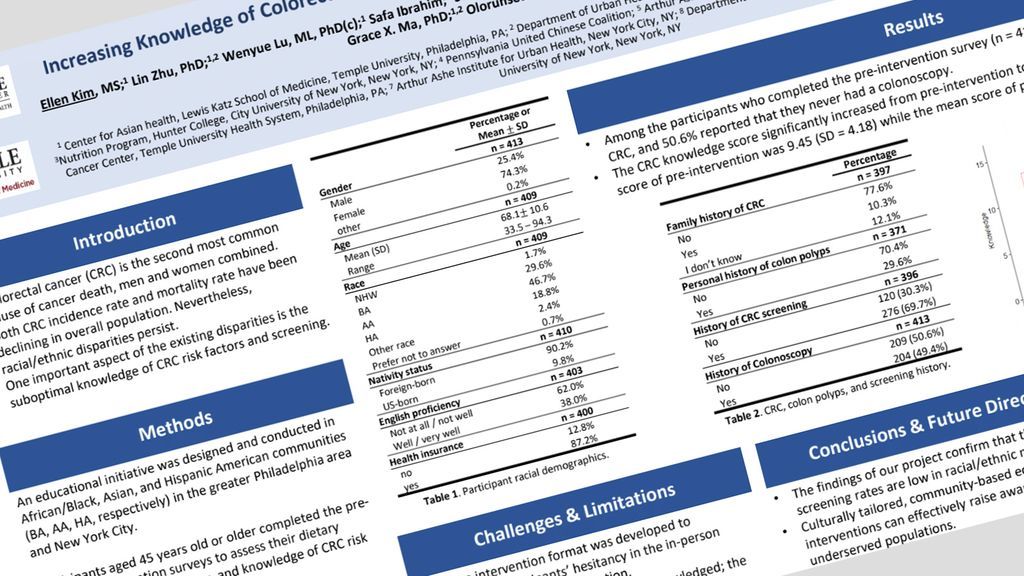
Increasing Knowledge of Colorectal Cancer Risk Factors and Screening Through A Community-Based Education Initiative
| Name | Ellen Kim |
| Institution | Temple University, Center for Asian health, Lewis Katz School of Medicine |
| Research Field | Population Research |
| Role at Institution | Staff |
| Presenter(s) | Ellen Kim |
